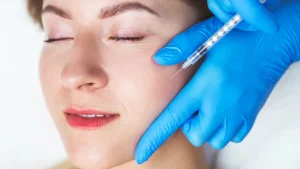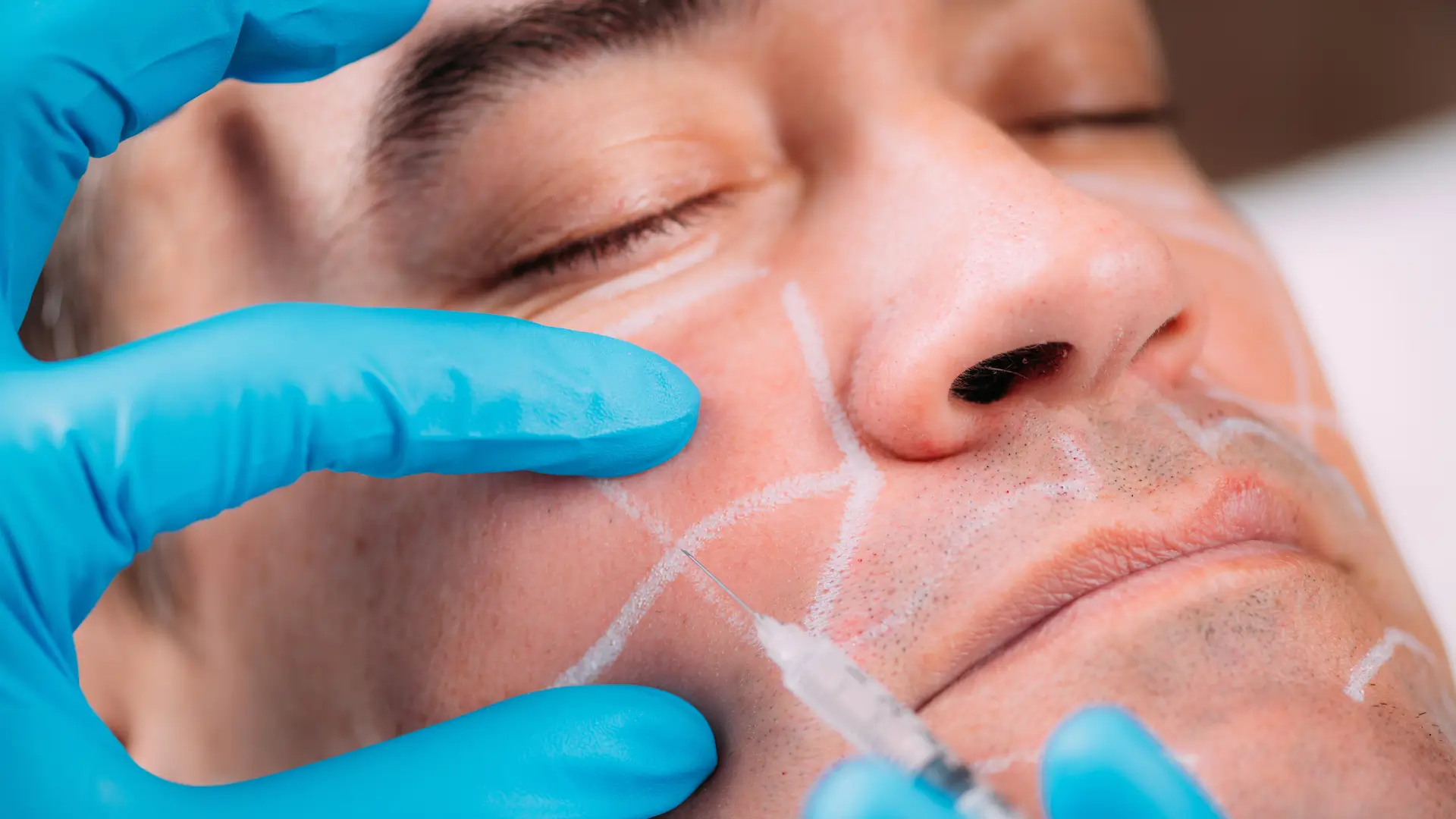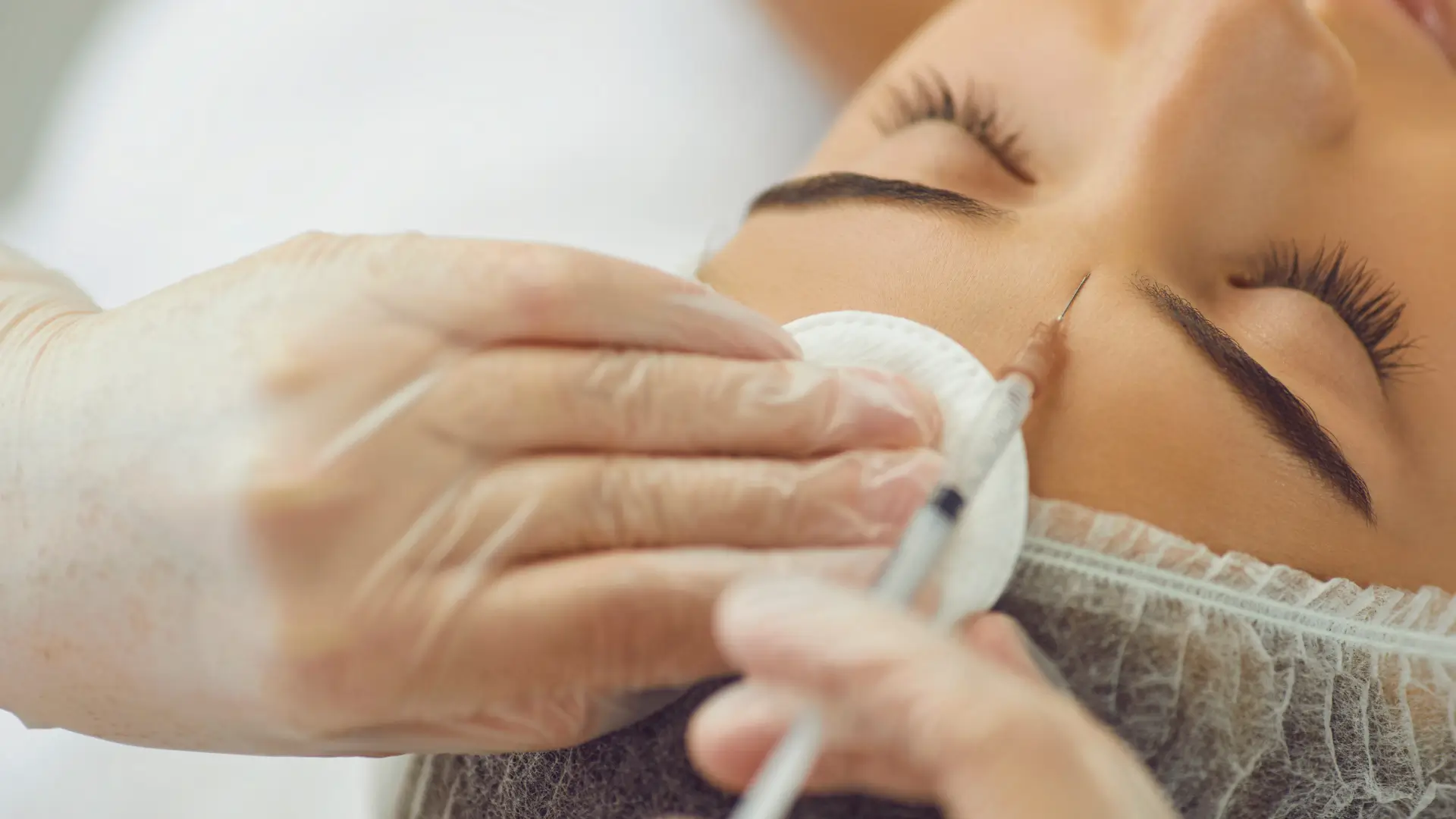In 2021, the global cosmetic surgery market was valued at $63.4 billion and is projected to grow at a compound annual growth rate of 9.6% from 2022 to 2030. This growth highlights the increasing demand for effective facial aesthetic treatments among individuals worldwide.
Non-surgical solutions like polynucleotides and exosomes have emerged as game-changers in addressing facial aging. Polynucleotides rejuvenate the skin by stimulating collagen production, while exosomes enhance cellular repair and regeneration. Together, they represent cutting-edge advancements in skincare.
This article will delve into the benefits of polynucleotides and exosomes in skincare treatments, their mechanisms of action, how they work together, and potential risks to consider.
Key Takeaways
- Polynucleotides enhance skin regeneration by promoting collagen production and cellular repair, making them effective for anti-aging treatments.
- Exosomes facilitate intercellular communication and deliver growth factors, improving skin texture and overall health.
- Combining polynucleotides and exosomes may lead to synergistic effects, enhancing collagen synthesis and skin rejuvenation.
- While generally safe, practitioners should inform patients of potential side effects and the importance of professional consultation before treatment.
About: Medica Depot is your trusted all-in-one supplier, offering a range of high-quality medical injectables and supplies. Buy Polynucleotides wholesale at Medica Depot today! Whether for health professionals, plastic surgeons, dermatologists, licensed estheticians, or other specialists, we can offer genuine, brand-name products you may need. With Medica Depot, we prioritize serving you better to improve the patient’s quality of life.
Understanding Polynucleotides and Exosomes
Practitioners and individuals seeking advanced aesthetic solutions should consider the unique benefits of polynucleotides and exosomes. While polynucleotides and Botox are often compared for their ability to improve skin appearance, exosomes offer a distinct advantage when combined with polynucleotides for enhanced results.
Polynucleotides are long chains of nucleotides that form the building blocks of DNA and RNA. In skincare, they promote skin regeneration by stimulating collagen and elastin production, accelerating wound healing, and improving cellular repair. These properties make polynucleotides an effective treatment for restoring skin elasticity and hydration.
Meanwhile, exosomes are microscopic vesicles that facilitate cell-to-cell communication. Packed with growth factors and proteins, they play a vital role in rejuvenating skin cells, enhancing skin health, and promoting regeneration. When used alongside polynucleotides, exosomes amplify the skin’s natural healing processes, delivering comprehensive rejuvenation and improving skin texture and radiance.
Benefits of Polynucleotides in Skincare

Polynucleotides products can offer various benefits when administered for applied for aesthetic purposes. Understanding these advantages makes these treatments more appealing to practitioners and patients, helping them achieve their aesthetic goals.
- Promotion of Collagen Synthesis: Polynucleotides activate fibroblasts, boosting collagen production. This process enhances skin elasticity and firmness, diminishing the visibility of fine lines and wrinkles.
- Cellular Repair and Regeneration: These ingredients support cellular repair by stimulating DNA synthesis and cell proliferation, speeding up healing, and revitalizing damaged skin.
- Anti-Aging Properties: Polynucleotides have anti-inflammatory and antioxidant properties. They fight oxidative stress and inflammation, slowing aging and preserving youthful skin.
Benefits of Exosomes in Skincare

Exosomes have earned their spot as a safe and effective ingredient in skincare. This ingredient’s mechanism of action and unique properties make it ideal for addressing individuals’ skin concerns while also delivering the following benefits:
- Facilitation of Cell Communication and Repair: Exosomes improve intercellular communication by transferring proteins, lipids, and genetic material between cells. This action supports cellular repair and enhances overall skin health.
- Skin Rejuvenation and Regeneration: These components transport growth factors and cytokines to skin cells, boosting collagen production and cellular turnover. This enhances skin texture and elasticity and gives it a youthful appearance.
- Anti-Inflammatory Properties: Exosomes have anti-inflammatory properties that reduce skin inflammation and redness. They regulate the immune response, fostering a balanced and healthy skin environment.
Using Polynucleotides and Exosomes in Combination for Optimal Results

There may be insufficient studies and evidence that showcase the safety and efficacy of combining polynucleotides and exosomes, but their complementary mechanism may show otherwise. However, this treatment combination should require a meticulous assessment and consultation with medical professionals to ensure patient safety and suitability.
- Synergistic Effects on Skin Rejuvenation: Polynucleotides enhance cellular repair, and exosomes improve intercellular communication, leading to more effective skin regeneration.
- Enhanced Collagen Production and Cellular Repair: Combining polynucleotides and exosomes enhances collagen synthesis and cellular repair. Polynucleotides activate fibroblasts, while exosomes provide growth factors, resulting in better skin structure and resilience.
- Improved Skin Health and Youthfulness: Their anti-inflammatory and antioxidant properties reduce oxidative stress and inflammation, preserving a youthful and vibrant complexion.
Potential Limitations of Polynucleotides and Exosomes
Despite their safety and efficacy, practitioners should explain the potential risks that may occur after their polynucleotides and exosomes injectable treatments. Whether for skincare applications or non-surgical procedures, polynucleotides and exosomes can lead to common side effects or trigger rare allergic reactions in some individuals. Typical reactions may include:
- Redness
- Swelling
- Irritation at the application site
While specific studies showcase the efficacy of this combination treatment, both procedures have proven their effectiveness in addressing various skin concerns. An exploratory investigation confirmed that the highly purified technology in polynucleotides could rapidly enhance skin dermis texture and quality in individuals with moderate to severe nasolabial folds.
A study explored the use of exosomes, highlighting their popularity in regenerative and cosmetic dermatology. They can potentially be used in wound healing, scar prevention, photodamage protection, skin regeneration, improved grafting success, hair loss prevention, and as biomarkers and drug carriers.
However, extensive long-term studies on the efficacy of polynucleotides and exosomes in skincare still need to be completed. This gap limits the understanding of their sustained benefits and potential risks.
Because polynucleotides and exosomes in skincare provide effective but temporary results, these treatments can be costly. This expense may limit accessibility for some patients, making them less viable for long-term use.
Incorporating Polynucleotides and Exosomes into a Comprehensive Skincare Regimen
Before utilizing these solutions for skincare, individuals should consult their trusted aesthetic professionals for proper suitability and a safe aesthetic journey. Creating personalized treatment plans ensures that polynucleotides and exosomes address individual skin concerns effectively. These tailored approaches maximize benefits and minimize potential side effects.
Using polynucleotides and exosomes as non-surgical injectables should require being performed by trained professionals. Proper application techniques enhance the efficacy and safety of these treatments. Furthermore, adherence to the provider’s recommended application should help deliver optimal outcomes.
Regularly monitoring and assessing treatment outcomes is essential to sustain treatment effectiveness. This allows for regimen adjustments, ensures optimal results, and promptly addresses adverse reactions.
Conclusion
Polynucleotides and exosomes represent a significant advancement in skincare treatments, offering innovative solutions for those seeking to address signs of aging and enhance skin health. Their unique properties—promoting collagen synthesis, facilitating cellular repair, and reducing inflammation—make them appealing options for practitioners and patients.
While combining polynucleotides and exosomes may yield optimal results, it is crucial to approach these treatments with careful consideration and professional guidance. As with any cosmetic procedure, potential risks should be evaluated, ensuring a safe and effective experience for all individuals looking to achieve their skin goals.
FAQs
1. What are polynucleotides, and how do they benefit the skin?
Polynucleotides are long chains of nucleotides that promote skin regeneration, enhance collagen synthesis, and support cellular repair. Their anti-inflammatory and antioxidant properties help diminish fine lines and wrinkles, making them practical for anti-aging treatments.
2. What role do exosomes play in skincare?
Exosomes are microscopic vesicles that facilitate cell-to-cell communication by transferring proteins and genetic material. They enhance skin rejuvenation, improve cellular repair, and have anti-inflammatory properties that help reduce redness and promote overall skin health.
3. Can polynucleotides and exosomes be used together for skincare treatments?
Combining polynucleotides and exosomes may enhance skin rejuvenation by synergistically boosting collagen production and cellular repair. However, it is essential to consult a medical professional to assess safety and suitability for individual skin needs.
References
- SCALE Community. (2023, August 2). The Rise of Plastic Surgery and Aesthetics in Private Equity Healthcare | SCALE Healthcare Community. SCALE Healthcare Community. https://www.scale-community.com/insights/the-rise-of-plastic-surgery-and-aesthetics-in-private-equity-healthcare/
- Bai, G., Thu Minh Truong, Pathak, G. N., Benoit, L., & Rao, B. (2024). Clinical applications of exosomes in cosmetic dermatology. Skin Health and Disease. https://doi.org/10.1002/ski2.348










